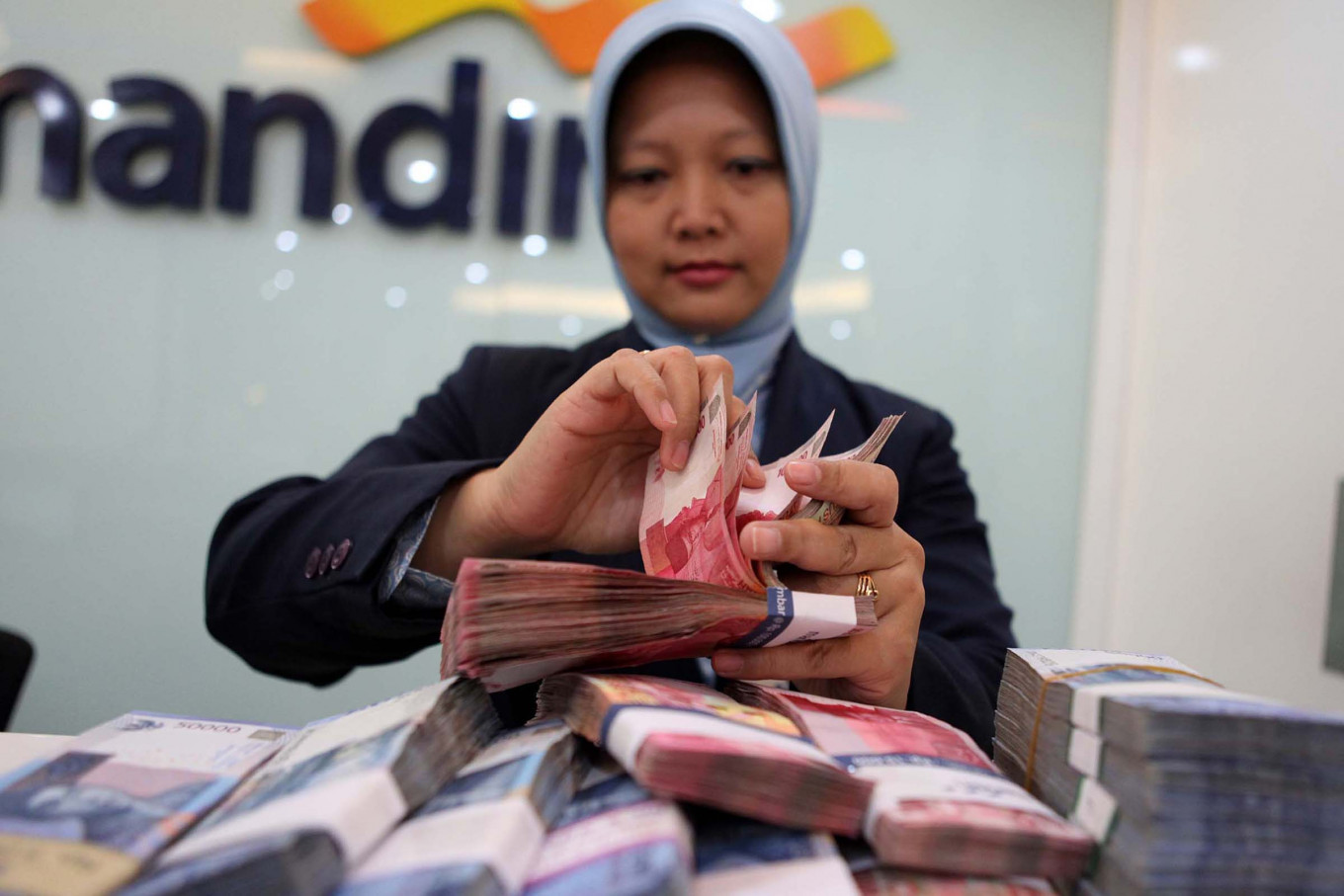Popular Reads
Top Results
Can't find what you're looking for?
View all search resultsPopular Reads
Top Results
Can't find what you're looking for?
View all search resultsBI calls for greater rate cuts for bank credit, more lending to support economic recovery
The central bank says that commercial banks need to make bigger interest rates cuts and expand lending for the government stimuls to work.
Change text size
Gift Premium Articles
to Anyone
B
ank Indonesia (BI) is urging commercial banks to cut lending rates and accelerate credit disbursements to lift the economy out of recession as loan channeling shrank for the first time in at least two decades due to weak demand and the banks’ risk aversion.
BI Assistant Governor Aida S. Budiman said on Monday that banks should lower lending rates further to drive stronger recovery and to support the government and central bank stimulus.
“Banks must lower credit rates to accelerate economic recovery and to solve the credit crunch,” Aida told a BI discussion on economic and monetary policy outlook. She added that the weak demand for credit and the risk-averse behavior of banks needed addressing to boost economic activity.
BI data shows that bank lending shrank 0.47 percent year-on-year (yoy) in October 2020, primarily due to banks’ reluctance to lend money as well as customers’ reluctance to take out bank loans amid cooling business activities.
Read also: BI vows to keep rate low in 2021 to support recovery
Indonesia plunged into recession in the third quarter, the first time since the 1998 Asian financial crisis, as the government struggled to contain the coronavirus outbreak and attendant economic fallout. Household spending and investments, which together account for more than 88 percent of gross domestic product (GDP), fell respectively 4.04 percent and 6.48 percent yoy in the third quarter.
The central bank has cut its benchmark interest rate this year by 125 basis points (bps) to a historical low of 3.75 percent to help boost economic recovery. Banks also eased their 2020 rates, but not as sharply as financial authorities had expected. BI data shows that the interest rate for working capital loans dipped only slightly to 9.38 percent in October from 9.44 percent in September.
As of Nov. 17, BI also lowered the statutory reserve requirement (GWM) that provided Rp 155 trillion in liquidity at commercial banks.The central bank’s various quantitative easing measures have provided total liquidity of Rp 680.89 trillion as of Nov. 17.
“We will bring together banks and businesses to stimulate credit disbursements from banks and demand from businesses,” BI Governor Perry Warjiyo said at Monday’s discussion. “We are seeing a potential credit surge in several sectors, such as the food and beverage and the metals sectors [...],” he added.
The central bank is projecting loans to grow between 7 percent and 9 percent in 2021 on the back of an economic growth projection of between 4.8 percent and 5.8 percent. The latter projection factors in growth drivers like increasing exports in line with global recovery, greater mobility and activities due to mass vaccination and improved domestic consumption as a result of government stimulus.
“Credit rates and lending are not the only issues contributing to weak loan disbursement,” Bank Central Asia (BCA) economist David Sumual told The Jakarta Post on Monday. “The government needs to give stimulus to priority sectors to boost the economy and credit growth.”
Read also: Surge in coronavirus infections slows rupiah rise
Debtors are struggling to repay their debts as businesses are paralyzed amid the restrictive COVID-19 policies and ensuing economic slowdown. Financial Services Authority (OJK) data show that banks have restructured Rp 932.4 trillion (US$66.06 million) in loans as of Oct. 26 as part of the government’s efforts to soften the impacts of the health crisis on customers and banks alike.
Meanwhile, Indonesia’s nonperforming loan (NPL) ratio, which measures bad loans to outstanding debt, was above 3 percent.
Research director Piter Abdullah of Center of Reform on Economics (CORE) Indonesia said financial authorities should not force banks to expand lending, as doing so would increase the default risk during the heath emergency.
“The COVID-19 pandemic is the main cause of the [economic] crisis, so if we want to boost the economy, the authorities should pay more attention to pandemic management,” he told the Post on Monday. “If banks lend money to businesses now, it might be difficult for the businesses to pay their debts [later].”










